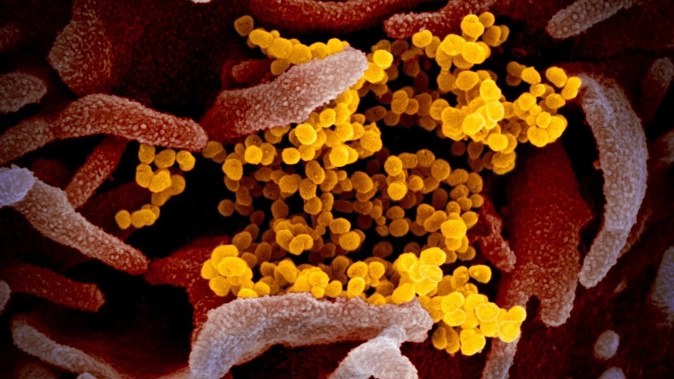
Covid-19 cases in New Zealand have dwindled to their lowest numbers since the pandemic began, as a modeller says the coronavirus appears to be finding fewer “evolutionary niches” to infect us.
At this time one year ago, daily case numbers were running at nearly 7000, amid a winter wave that left thousands of Kiwis in hospital with the virus.
Right now, however, cases are tracking at just a few hundred each day, following a downward and generally muted trend that’s been observed since the start of the season.
Yesterday, the Ministry of Health reported 3764 new cases over the past week, of which close to half were reinfections, along with 119 hospitalisations and 24 further deaths.
Covid-19 modeller Professor Michael Plank said the lower numbers might be partly explained by the likely fact that fewer Kiwis were testing for or reporting infections.
He estimated New Zealand’s current case ascertainment rate (CAR) - or the proportion of cases picked up or reported at a given time, versus total overall infections – at between one in three or one in four.
Yet there was also much to suggest that case numbers were low because there was now much less of the virus circulating in our communities.
Plank put the effective reproduction number (Reff) at about 0.9: meaning that a given case was likely, on average, to pass the virus on to fewer than one other person.
“If we look at hospital numbers, they’re almost at an all-time low since Omicron arrived as well – and we can see that the level of virus being detected using wastewater surveillance is also at a very low level.”
He singled out a high level of population immunity – most Kiwis have now been vaccinated and exposed to the virus, if not multiple times – as the biggest factor.
Within New Zealand’s “soup” of circulating Omicron subvariants had come a recent succession of strains – notably “recombinant” types like our dominant XBB lineages – each packing some immune-evasion advantage.
“These have been just enough to keep pressure on case numbers, and we did have a kind of ‘mini wave’ around April,” Plank said.
“But since then, it looks like numbers have dropped off and we haven’t had any significant new variants for a while now.
“So, overall, and given we’re well into winter now, the numbers are showing that this virus isn’t following a clear seasonal pattern, and that it’s driven more by variants and waning immunity.”
Similar trends could be seen in other countries.
Despite the currently low numbers, Plank had no doubt we’d see more Covid-19 waves in future.
“Whether that’s because another variant comes along, or that over time, there’ll be enough susceptible people to allow another wave to happen, it’s a little hard to predict,” he said.
“Perhaps it’s getting harder for the virus to find new niches to exploit and gain an obvious advantage, and hopefully that trend continues, with waves becoming more muted over time.”
At the same time, he said we shouldn’t lose sight of the fact that Covid-19 remained a major health burden in New Zealand, having caused nearly 3200 virus-attributed deaths, more than 30,000 hospitalisations and an untold number of people with long-lingering symptoms.
“Covid is still here in the community, and I think that’s always going to be the case,” Plank said.
“It’s also true that Covid is causing more deaths than flu, but now, I think it’s starting to become much more comparable: it might be causing double the number, but not 10 times.”
Jamie Morton is a specialist in science and environmental reporting. He joined the Herald in 2011 and writes about everything from conservation and climate change to natural hazards and new technology.
Take your Radio, Podcasts and Music with you









